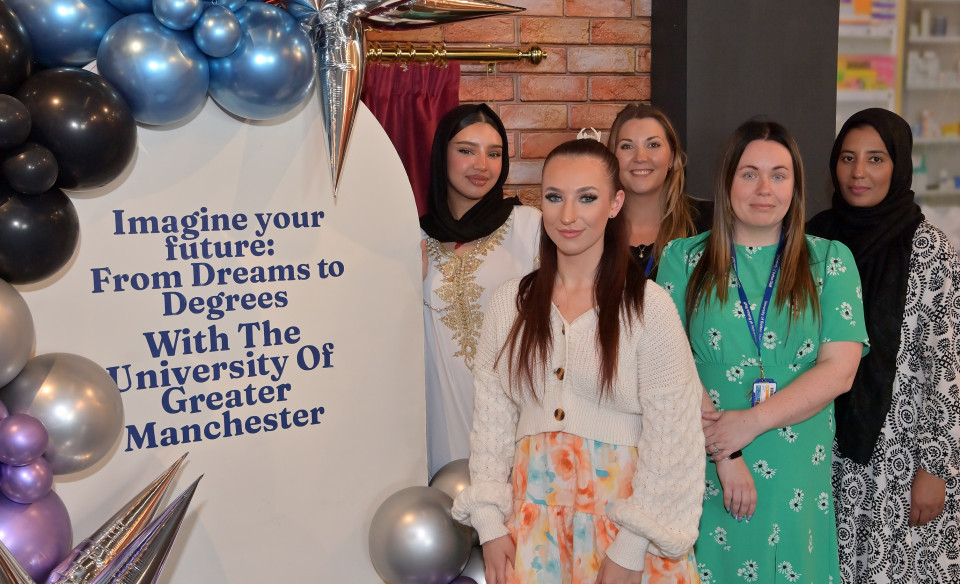
Expanding Higher Education Access for Disadvantaged Learners in the UK
The University of Greater Manchester has launched an innovative programme aimed at opening doors for learners from disadvantaged backgrounds who aspire to build careers in health, social care, and community sectors. This initiative, led by the university, provides a comprehensive pathway into higher education and degree apprenticeships, addressing barriers that often hinder access to these vital fields.
This article details the key features of the programme, its potential benefits for participants, and practical advice for learners considering this opportunity.
Introducing the Entry to Higher Education Apprenticeship Programme (EHEAP)
The University of Greater Manchester has developed the Entry to Higher Education Apprenticeship Programme (EHEAP) to support individuals who have not traditionally had access to higher education. The programme is entirely free and spans 10 weeks, designed to equip learners with essential academic and employability skills.
Targeted at disadvantaged learners, especially those without Level 3 qualifications, the course aims to prepare students for degree apprenticeships or undergraduate studies in health, social care, and youth sectors. This tailored approach addresses the sector’s growing demand for qualified professionals and provides learners with real career pathways.
Core Components and Skills Development
Participants in EHEAP gain skills in various essential areas, including:
- English for Higher Education, academic writing, and research methods
- Employability skills and career development strategies
- Sustainability and understanding cultural capital
- Wellbeing, resilience, and personal development techniques
This comprehensive skill set enhances learners’ confidence and readiness for higher education or apprenticeships, giving them a competitive edge in the job market.
Structured Support and Personalised Guidance
One of the programme’s strengths is its dedicated personal tutoring system. Each learner is assigned a personal tutor who provides tailored guidance and assistance throughout the course. Additionally, students have access to wellbeing and student support advisors, helping them navigate academic and personal challenges effectively.
Furthermore, learners can benefit from mentoring and coaching sessions, promoting sustained development beyond the classroom. This level of individualised support plays a vital role in ensuring the success of disadvantaged students.
Degree Apprenticeships: Combining Work and Study
Post-course, learners are encouraged to pursue degree apprenticeships in fields like physiotherapy, occupational therapy, public health, youth work, and nursing. These apprenticeships offer a blended model of on-the-job training combined with university study, enabling learners to gain practical experience and earn a qualification simultaneously.
Some of the upcoming degree apprenticeship programmes are still in development, but existing pathways highlight the university’s commitment to creating accessible routes into professional health and social care careers.
Financial Support and Incentives
To ease financial barriers, the university offers a £300 bursary to support students during the foundation course. While acceptance into a degree apprenticeship cannot be guaranteed, the programme prepares learners well for interview processes and direct contact with potential employers in the care and community sectors.
Success Stories and Future Opportunities
The impact of EHEAP is evident in early successes. For example, the pilot cohort of seven learners received conditional offers for undergraduate degrees in fields such as midwifery, physiotherapy, and social work. These achievements demonstrate the programme’s potential to change lives and foster diverse talent pools within critical sectors.
Students like Firdaus Amarsil, a Moroccan aspirant aiming to become an orthodontist, and Giedre Ferreira, who improved her English and found a clear educational pathway through the course, exemplify the programme’s transformative impact.
Practical Advice for Interested Learners
If you are considering this opportunity, here are some steps to take:
- Visit the EHEAP programme page for detailed information and registration instructions.
- Reflect on your career aspirations in health, care, or community sectors and how this programme aligns with your goals.
- Gather necessary documentation, especially if you lack formal qualifications, and be prepared to demonstrate your commitment and enthusiasm.
- Leverage the personalised support available, including mentoring and coaching, to enhance your readiness for higher education.
- Consider future employment opportunities and degree apprenticeships linked to the programme, and network with university representatives and local employers.
Conclusion: A Valuable Step Toward Inclusive Higher Education
The University of Greater Manchester’s EHEAP offers a practical, supportive route into higher education and careers in the care and community sectors for disadvantaged learners. By focusing on skills development, personalised mentoring, and real-world pathways, the programme addresses both educational and employment barriers faced by many aspiring professionals.
For learners seeking to make a meaningful difference in their communities and build sustainable careers in health and social care, this initiative represents a significant opportunity. Interested individuals are encouraged to explore the programme further and consider the positive impact it can have on their lives and careers.
Take the next step today by visiting the EHEAP programme page and start your journey toward a rewarding career in the care sector.

